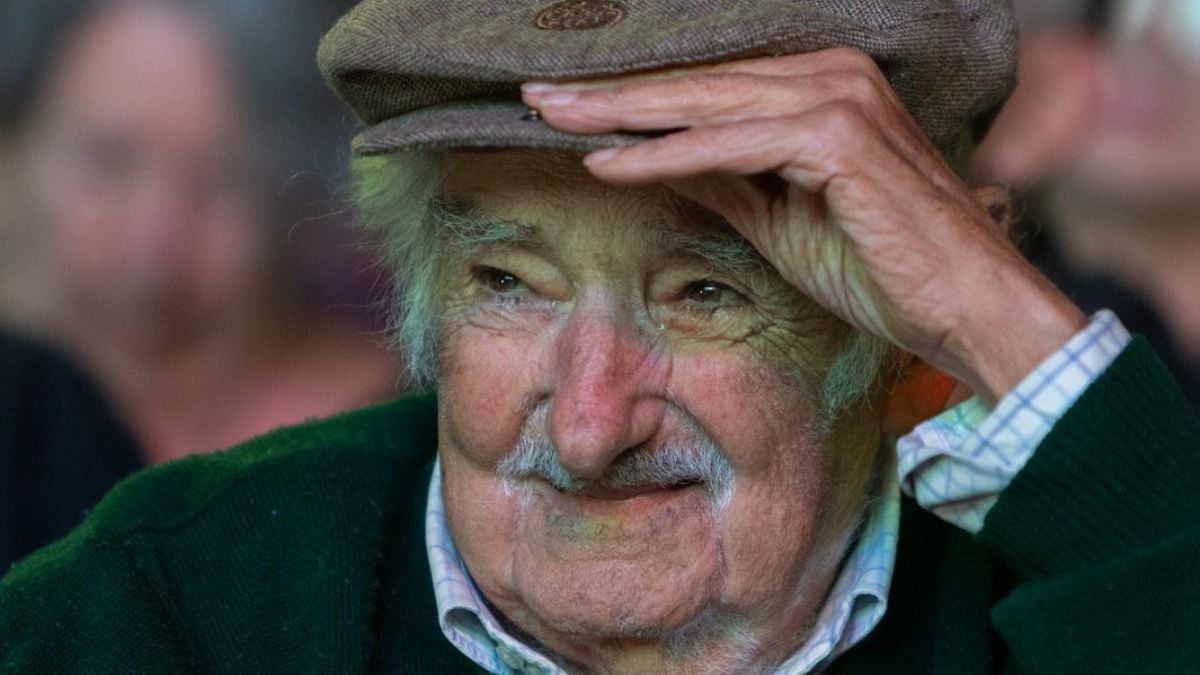José “Pepe” Mujica, Uruguay’s former president and revolutionary-turned-statesman, passed away on May 13, 2025, at the age of 89. Known globally as “the world’s poorest president,” Mujica’s legacy was defined not by material wealth, but by integrity, humility, and his unwavering love for his country. Despite holding the highest office in Uruguay, Mujica lived modestly, refused luxury, and gave away most of his earnings. His estimated net worth at the time of his death was around $300,000 USD—a sum that stands in sharp contrast to his global influence and reputation.
A Farewell to a Beloved Leader
Mujica’s death was confirmed by Uruguay’s current president, Yamandú Orsi, who expressed deep sorrow and gratitude in a heartfelt post on X (formerly Twitter). “With deep sorrow, we announce the passing of our comrade Pepe Mujica. President, activist, leader, and guide. We’re going to miss you dearly, beloved Old Man. Thank you for everything you gave us and for your profound love for your people.”
Mujica had been battling esophageal cancer, diagnosed in April 2024. After the disease spread to his liver, he chose to stop treatment in January 2025, wishing to live his final days in peace on the farm he cherished.
From Guerrilla Fighter to President
José Alberto Mujica Cordano was born on May 20, 1935, in Montevideo, into a humble family of Basque and Italian descent. His early life shaped his values of equality and solidarity. In the 1960s, he joined the National Liberation Movement-Tupamaros (MLN-T), a leftist guerrilla group that opposed Uruguay’s democratic but increasingly repressive governments.
Mujica paid a steep price for his political convictions. He was captured multiple times, survived gunshot wounds, and escaped prison once through a tunnel. In 1972, he was recaptured and spent the next 13 years in brutal imprisonment, including long periods in solitary confinement under the military dictatorship (1973–1985). He later spoke candidly about the psychological toll of those years—surviving with his hands tied in wire, bathing with only a glass of water, and enduring near-total isolation.
Political Rebirth and Rise to the Presidency
When democracy returned to Uruguay, Mujica reentered politics through peaceful, institutional channels. He became a senator, then served as Minister of Livestock, Agriculture, and Fisheries. His straightforward speech, empathy for the poor, and grassroots popularity set him apart.
In 2009, he ran for president representing the Broad Front coalition, a left-wing alliance. Promising education reform, anti-poverty measures, and public security, Mujica defeated former president Luis Alberto Lacalle and assumed office in March 2010 as Uruguay’s 40th president.
His administration gained international attention not just for legal reforms, but for his personal example. He legalized cannabis, making Uruguay the first country in the world to regulate marijuana production and sale nationally. He also championed same-sex marriage, abortion rights, and green energy initiatives, all while encouraging foreign investment and economic pragmatism.
A Net Worth That Reflects Principles Over Possessions
Pepe Mujica famously donated up to 90% of his presidential salary to charitable organizations and lived on about $1,000 per month during his presidency. He resided in a modest farmhouse on the outskirts of Montevideo, tended a garden, and drove a 1987 Volkswagen Beetle—a car that later drew millions in offers, though he declined to sell it.
Upon leaving office in 2015, Mujica declared a personal net worth of 8,077,063 Uruguayan pesos, roughly $300,000 USD at the time. While this figure may seem modest by presidential standards, it symbolized a life free of corruption and consumerism. Mujica once said, “I’m not the poorest president. The poorest is the one who needs a lot to live.”
His income after leaving office consisted of pension payments, book royalties, and speaking engagements, but he never significantly increased his wealth. He continued to live simply, committed to spending his time with his wife, Lucía Topolansky, a fellow former guerrilla and senator, and their many dogs.
A Cultural and Global Icon
Mujica’s authenticity resonated worldwide. In an age of political spectacle, he remained refreshingly real. His 2012 speech at the Rio+20 United Nations Conference went viral, challenging world leaders to rethink the connection between happiness, consumption, and sustainability.
His presidency offered a contrast to more populist or authoritarian figures of the Latin American “Pink Tide.” While leaders like Hugo Chávez and Cristina Fernández de Kirchner faced criticism for corruption or economic mismanagement, Mujica earned respect for fiscal responsibility and progressive policy grounded in practical governance.
Art, Legacy, and Final Years
In later years, Mujica focused on writing, gardening, and public speaking. He published reflections on democracy, ethics, and humanity, and was frequently interviewed by international media and academics.
He remained politically active, even after stepping down from the senate in 2020 due to health issues. Always a teacher and philosopher at heart, Mujica used his final public appearances to call for empathy, social justice, and a more sustainable world.
Despite his low net worth, Mujica’s moral capital and influence were priceless. Leaders and citizens around the world mourned his passing not because he was rich or powerful, but because he lived with dignity, purpose, and love for his people.
Final Thoughts
As of 2025, José “Pepe” Mujica’s estimated net worth remained around $300,000, a reflection of a life lived with intentional modesty. His legacy is not in material accumulation, but in the hearts of millions inspired by his humility and honesty.
In an era where wealth often defines legacy, Mujica defied the norm. He showed the world that greatness isn’t measured in dollars, but in decency, conviction, and a life of service.

